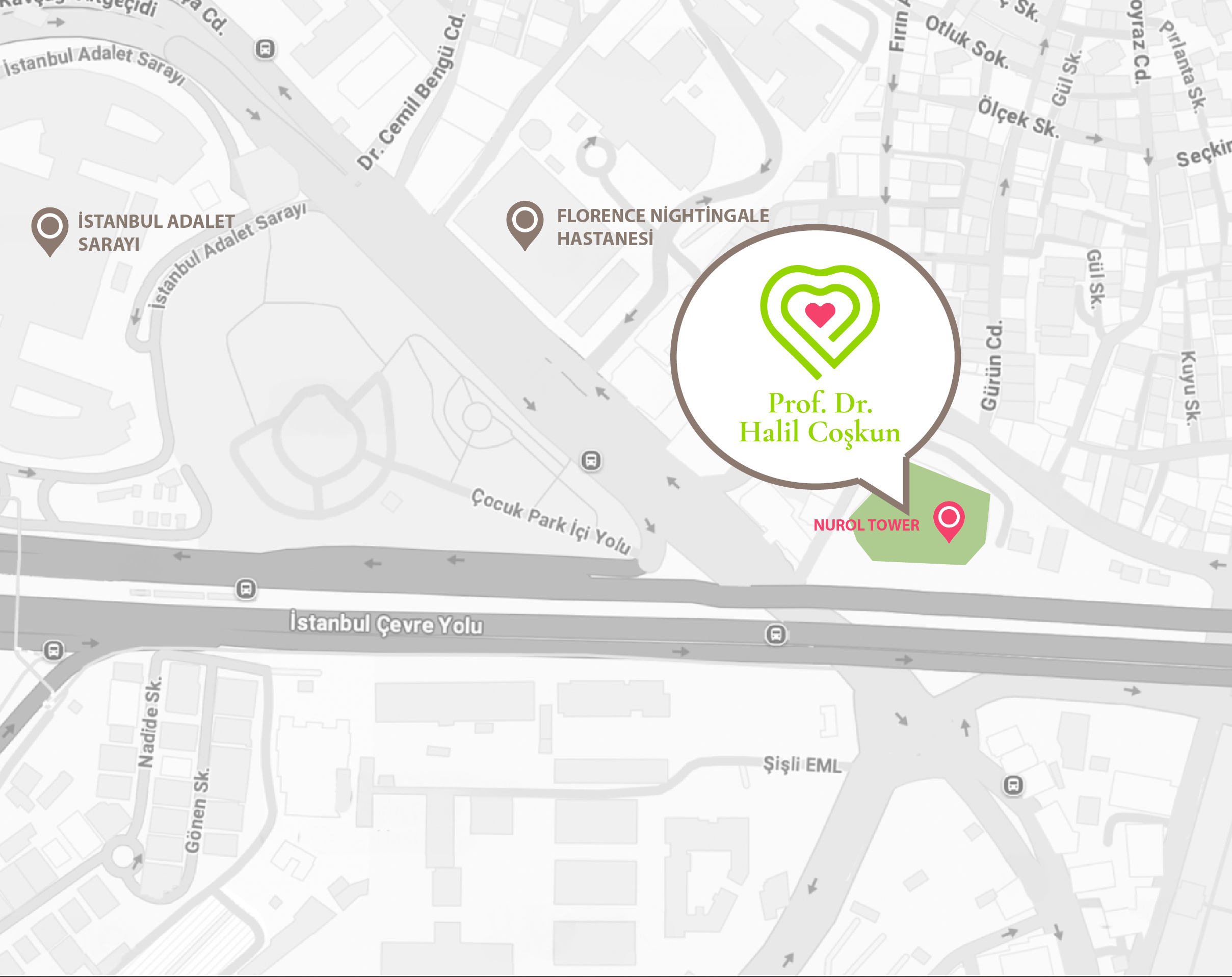Sleeve Gastrectomy or Gastric Bypass? Which Obesity Surgery is Right for You?
When it comes to obesity surgery, the two most commonly preferred methods are Sleeve Gastrectomy (Tüp Mide) and Gastric Bypass surgeries. Both methods have different advantages and risks. So, which one is more suitable for you?
What is Sleeve Gastrectomy Surgery?
In sleeve gastrectomy surgery, approximately 80% of the stomach is removed. The remaining stomach forms a thin, long tube:
- Reduces food intake (restrictive effect)
- Decreases ghrelin (hunger hormone) production → helps control appetite
- No malabsorption occurs, so nutrient absorption continues normally
- After the surgery, vitamin and mineral supplementation is generally recommended, but the doses are lower, and lifelong use is not required.
- Sleeve gastrectomy is irreversible. However, if needed in the future, more advanced surgery (revision) can be done, and this process is technically feasible.
- Endoscopic access to the stomach is possible after evaluations.
 What is Gastric Bypass Surgery?
What is Gastric Bypass Surgery?
Gastric bypass is a surgery that both reduces stomach volume and decreases absorption from the intestines.
It has two main types:
- Roux-en-Y Gastric Bypass
- Mini (Single Anastomosis) Gastric Bypass
In this surgery:
- The stomach is reduced to a small pouch with a volume of 25-50 ml
- The small intestine is re-routed to connect to the new stomach pouch
- Absorption of nutrients is reduced → fewer calories are used by the body
- The stomach is not removed; it is reduced in size. However, endoscopic access to the back of the stomach is not possible!
- Because absorption is restricted, vitamin and mineral deficiencies are more common.
- Therefore, long-term or lifelong supplementation may be required.
- Revision surgery is possible, but it is technically more complex.
Sleeve Gastrectomy or Gastric Bypass? How Should the Decision Be Made?
Both surgeries have their advantages and disadvantages. When deciding which method to proceed with, the following criteria should be considered:
- Body mass index (BMI)
- Age, gender
- Presence of comorbidities like diabetes, hypertension, sleep apnea
- Eating habits
- Patient expectations and motivation
- Adherence to long-term follow-up
Sleeve gastrectomy is less invasive, can be monitored with endoscopy, and does not disrupt nutrient absorption.
Gastric bypass may be more effective for weight control and managing metabolic diseases, but it requires more vitamin-mineral support and follow-up.
Personalized Assessment is the Best Approach
Each individual’s health status is different. Therefore, the most suitable surgery for you should be determined based on a thorough medical evaluation, laboratory tests, and lifestyle analysis.
- In our clinic, personalized surgical planning is performed for each patient. You can contact us to determine the most appropriate surgical approach for you here.










